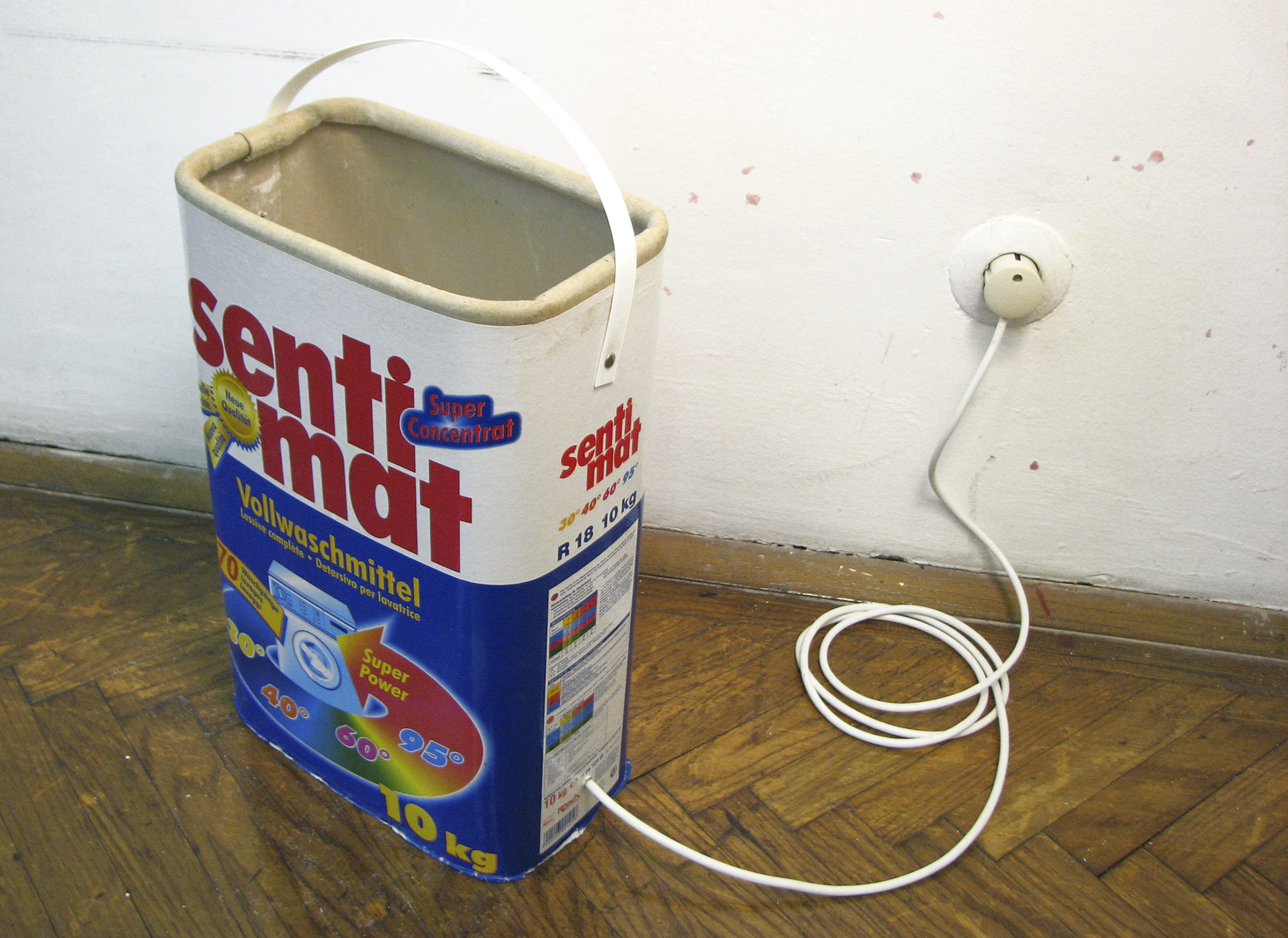Sentomat, 2008
25.5 x 14 x 39 cm,
'Sentimat' washing powder box with 10kg capacity, washing powder, wooden king chess piece (height 8cm), power supply, electric motor with gear, bicycle chain and two bicycle gears, MDF board, aluminum tubes, steel wire, foam seal, plexiglass, threaded rods
'Sentimat' washing powder box with 10kg capacity, washing powder, wooden king chess piece (height 8cm), power supply, electric motor with gear, bicycle chain and two bicycle gears, MDF board, aluminum tubes, steel wire, foam seal, plexiglass, threaded rods
When this Sentimat washing powder box is plugged into an outlet, it causes a small chess piece inside the box to slowly wiggle back and forth in a circle, creating a trace in the washing powder that keeps redrawing itself. The word 'sentimat' sounds similar to sentimental and a matching anagram is 'sein Matt', which means ‘his mate’.
The Sentomat can be seen as an expression of manifested melancholy, if one imagines that the king, who in the meantime has become the 'solus rex', has no choice but to move in circles in his own little kingdom. In this way, the difficult and perhaps tragic question of human freedom of will is posed in a humorous and ironic way.
The game of chess in itself already contains the question of freedom of will, in that the chessboard and the rules of the game strongly restrict the freedom of movement of the chess pieces.
The Sentomat can be seen as an expression of manifested melancholy, if one imagines that the king, who in the meantime has become the 'solus rex', has no choice but to move in circles in his own little kingdom. In this way, the difficult and perhaps tragic question of human freedom of will is posed in a humorous and ironic way.
The game of chess in itself already contains the question of freedom of will, in that the chessboard and the rules of the game strongly restrict the freedom of movement of the chess pieces.
But unlike these 64 squares, the chess king in the box basically has only one square with raised walls. At least the chess king can move step by step in this field, even if the path he takes is not chosen by himself, but is dictated by a hidden mechanism.
The will of the chess pieces is determined by the chess players, who in turn voluntarily obey the will of the chess rules. Although the actual subject in chess is therefore chess itself, it could be the case that the chess players even enjoy this self-chosen unfreedom of will. This may also explain the motivation that drives the chess king, even if he may even be aware that his moves basically achieve nothing and can be little more than a nice pastime.
Many thanks to Jakob Scheid for his helpful advice.
The will of the chess pieces is determined by the chess players, who in turn voluntarily obey the will of the chess rules. Although the actual subject in chess is therefore chess itself, it could be the case that the chess players even enjoy this self-chosen unfreedom of will. This may also explain the motivation that drives the chess king, even if he may even be aware that his moves basically achieve nothing and can be little more than a nice pastime.
Many thanks to Jakob Scheid for his helpful advice.


© 2026 Matthias Kendler